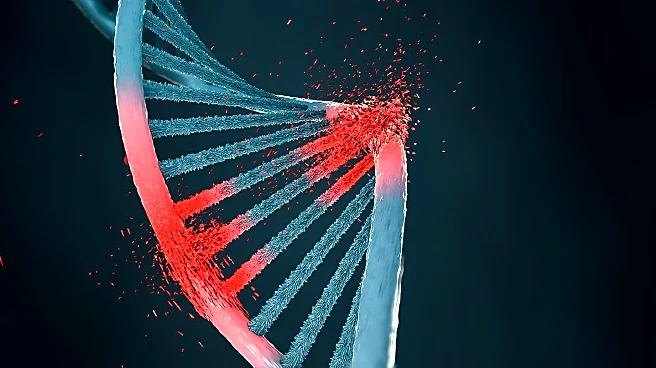What is the story about?
What's Happening?
Researchers have identified a novel signaling pathway involving PJA2 and CHRM3 that creates a therapeutic vulnerability in gastric tumors. The study found that PJA2, a RING E3 ligase, ubiquitinates and degrades CHRM3, suppressing tumor progression. This pathway was shown to be effective in inhibiting tumor growth in mouse models and patient-derived organoids. The findings suggest that targeting this pathway could offer new treatment options for diffuse-type gastric cancer.
Why It's Important?
The discovery of the PJA2-CHRM3 signaling axis provides a new target for therapeutic intervention in gastric cancer, a disease with limited treatment options. By understanding the molecular mechanisms involved, researchers can develop drugs that specifically target this pathway, potentially improving patient outcomes. This research also highlights the role of cholinergic innervation in cancer progression, offering insights into broader cancer treatment strategies.
What's Next?
Further research will focus on developing drugs that target the PJA2-CHRM3 pathway and testing their efficacy in clinical trials. Scientists may also explore the broader implications of cholinergic signaling in other types of cancer, potentially leading to new therapeutic approaches.


















